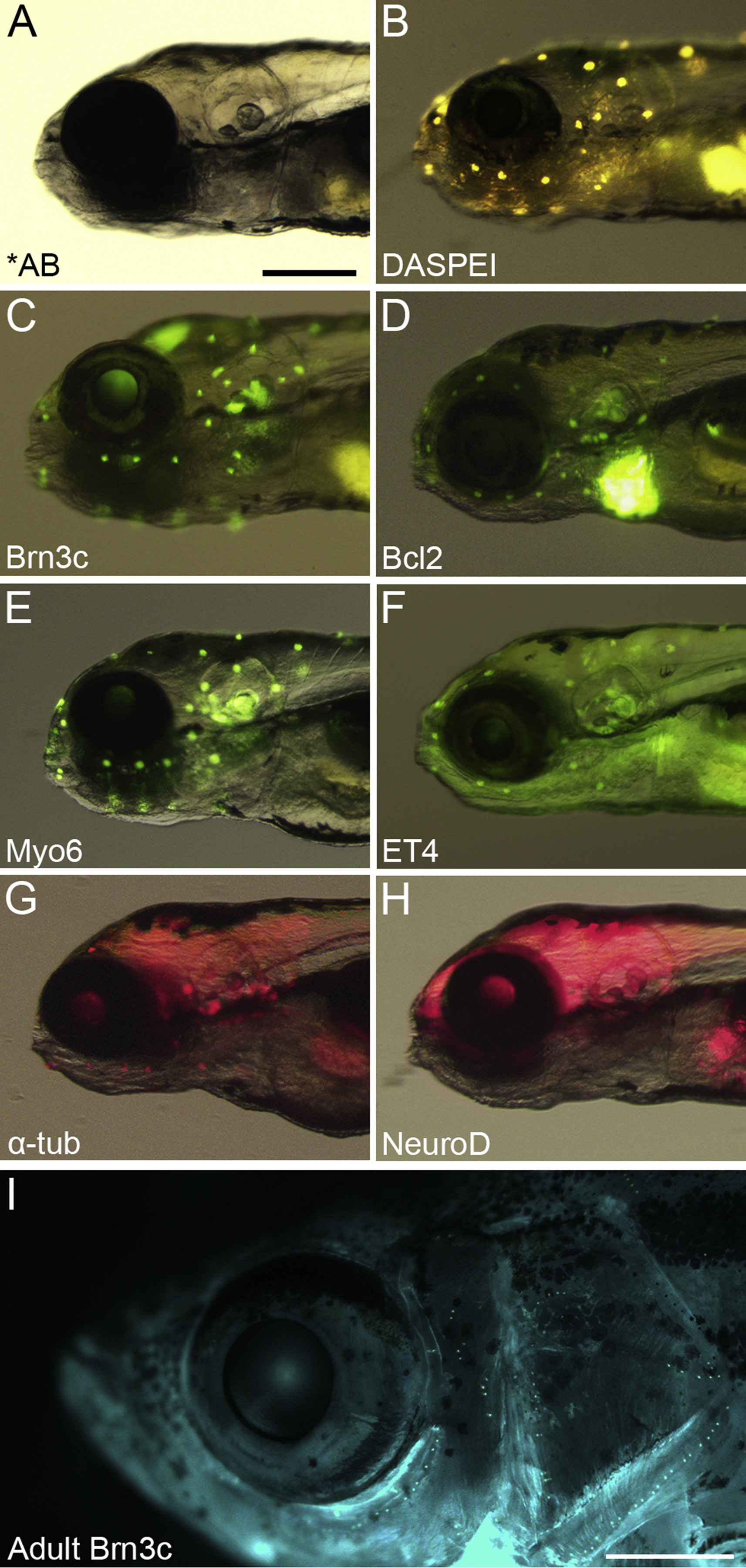Fig. 1
Transgene expression profiles for zebrafish lines used in this study. (A) Brightfield image of 5 dpf *AB zebrafish head. The otoliths of the inner ear are clearly visible. (B) *AB larva stained with the vital dye DASPEI, showing the location of lateral line neuromasts (yellow dots). (C) Lateral view of a Brn3c:mGFP fish shows GFP expression in lateral line neuromasts, inner ear epithelia, and retinal tectum. (D) GFP expression in the myo6:EGFP-Bcl2 larva is localized to lateral line neuromasts and inner ear epithelia. Note that the heart also expresses GFP as a transgenesis marker, but the heart GFP is not fused to Bcl2. (E) Myo6:EGFP larvae express bright cytoplasmic GFP in lateral line and inner ear hair cells. (F) ET4 larvae express GFP in all hair cells. (G) The α-tubulin:tdTomato larva expresses the red fluorescent protein tdTomato in all hair cells, and shows diffuse expression in multiple brain regions. (H) Lateral view of NeuroD:tagRFP transgenic fish shows RFP expressed in multiple brain regions as well as the pancreas, but not in the inner ear or lateral line. Scale bar in A equals 250 μm and applies to all larval head images (A–H). (I) Lateral view of Brn3c:mGFP adult with neuromasts visible as rows of fluorescent dots around the eye and on the gill cover. The brain and inner ear fluorescence is obscured by skin pigmentation. The scale bar in G is 1 mm. (For interpretation of the references to colour in this figure legend, the reader is referred to the web version of this article.)
Reprinted from Hearing Research, 341, Monroe, J.D., Manning, D.P., Uribe, P.M., Bhandiwad, A., Sisneros, J.A., Smith, M.E., Coffin, A.B., Hearing sensitivity differs between zebrafish lines used in auditory research, 220-231, Copyright (2016) with permission from Elsevier. Full text @ Hear. Res.

